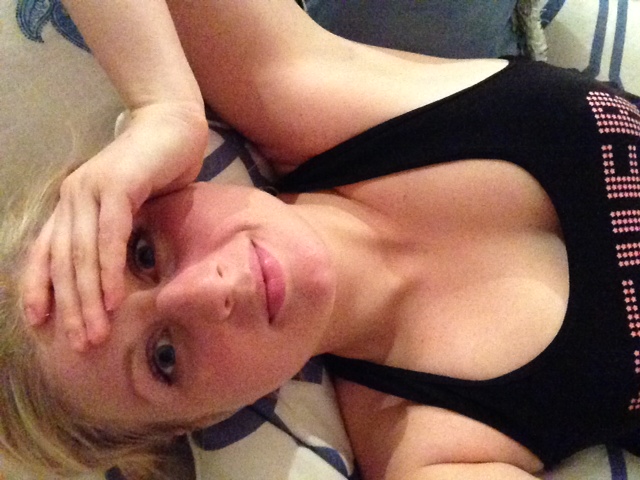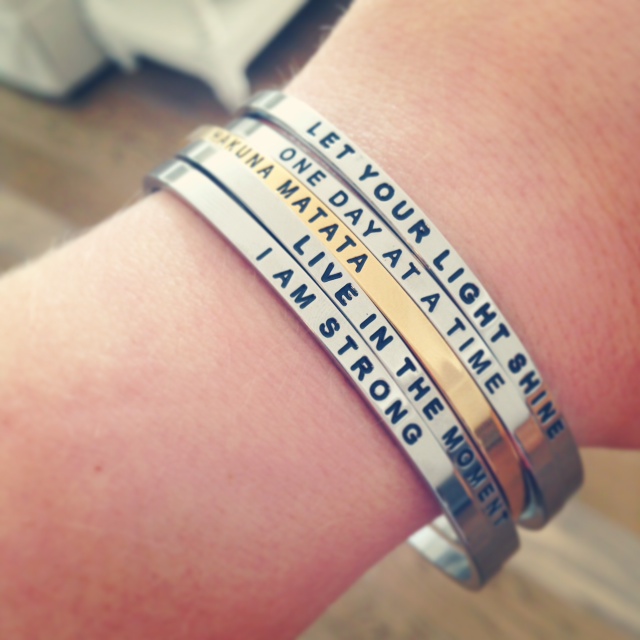Opinion: The definition of health and my experience with orthorexia nervosa.
If you looked at me today, you'd hopefully notice I'm easy going, laughing, keen to get out, explore and socialise. You'd hopefully notice my absolute love of fresh produce, cooking and experimenting with flavours. You'd hopefully notice my interest in fitness and self-acknowledgement that yeah, there are a few kilos to shift, that they aren't going to disappear overnight and that I'm keen to push myself. You may even think I'm a pretty healthy dame. But then again, you probably didn't notice when I didn't have my shit together...when I was trying so desperately to be the healthiest dame on earth.
At the start of this year, I publicly stated I'd be doing "My Year Without" - a year without gluten, sugar, soy, artificial sweetener, alcohol, trans fat and dairy. I pledged to take weekly photos to keep myself accountable in losing weight (which I still do every couple of weeks, for my own reflection down the track). I was so motivated. My reasoning behind doing "My Year Without" was a sort of socio-scientific experiment on myself after becoming tired of the endless reports from the media dictating which foods were on or off the menu. Every week there's a new buzz word. I was perplexed as to how we are simultaneously the fattest we've ever been, yet the most health-obsessed we've ever been. I wanted to see for myself, as an average person wanting to achieve optimal health, what it was actually like to go by what society - via the media - deems "healthy".
The first month was pretty awesome. I had momentum. I also had a bunch of people asking me funny questions, but I felt armed and comfortable with my decisions. I felt armed. Defensive.
When I wasn't seeing any movement on the scale, I was frustrated. I was trying so hard. I was being so conscious of my every food choice. Every single food choice. I was thinking about it day and night. I was adamant that I would not forgo socialising because of my new lifestyle, but I was so obsessed with succeeding. I wanted to say "I went a year without...". I wanted to put my experience into words in a book. And yes, I was genuinely interested in seeing how such a lifestyle would affect my bloodwork, weight and general health.
Then one day, about two months ago now (this blog post has been sitting in my drafts for so long), I caught myself out after some time in denial. I was exhausted, my skin was breaking out, my gut wasn't having a great time, I was physically responding to stress more than I ever had before and my nails were weak. "Why do I look and feel so shit if I've been gorging on salads and fermented foods and lean protein?!" (granted, the excessive nut butter may have played a role in the tummy issue haha).
So then I ate some um-ahh! Greek yoghurt. The next day I ate a whole banana. A whole banana. You're probably thinking "yeah...and? What's the big dealio about a 'nana?". That's exactly the point. In trying to be so super-freaking-amazingly healthy, I'd scared myself into health food oblivion. The following week I had two glasses of wine and they went down a treat.
Shortly after that day a couple of months ago, I read an article that slapped me in the face and gave me a reality check. I'd like to draw your attention to a term you mightn't heard of before.
Orthorexia Nervosa.
Literally, orthorexia nervosa means a fixation on righteous eating. It's an eating disorder.
Orthorexics have an unhealthy obsession with food. They strive to eat healthy food but become obsessed with what to eat (or not eat), how much to eat, when to eat, how to eat. Their self esteem takes a battering if they break the rules they set for themselves. In an ironic twist, while trying to be high-and-mighty by maintaining a rigid eating style that they perceive is superior to others', their mental health suffers. If they're not thinking about the next meal, they're thinking about what they're craving, their perception of the negative things that would happen if they gave in to that craving, or how they'll be able to work their regime around a social event (...whether that's a coffee with the girls, a date with a new prospective love interest, a full-blown ball or even an entire holiday). Eventually, orthorexics are so self-involved that their obsession and the time it consumes can crowd out other interests, damage relationships and friendships and really make them crumble under stress levels that they would normally cope with just fine. They become frustrated with the standards they've set for themselves, yet can't bring themselves to not attain those standards, or get caught in a cycle of self-punishment (normally negative chatter in the mind).
I was orthorexic.
On that day when I finally realised I wasn't feeling or looking as healthy as I surely should have been given my regime, I had to re-define health. Health is so much more than what your bloodwork shows or the absence of disease. To me, optimal health is both of those things, in conjunction with an internal sense of emotional wellbeing. The absence of anxiety, having a positive outlook, being excitable and keen for adventure and spontaneity. Being able to physiologically cope with the stresses that come with everyday life. Being able to socialise, date and work without food being an obstacle.
I relaxed my rules and, according to those rules, fell completely off the wagon for a good week or so. But even after that one week, my skin improved, my nails grew, I had more energy and I felt happier and freed. I didn't even have any negative self-chatter or post-consumption guilt that week.
These days, I'm still ironing out the creases that orthorexia has left. Although I caught myself out pretty early on in the piece, disordered eating is associated with the development of unhealthy habits and I've always had trouble killing my habits! What I found in adhering to my rules was that I started craving a heap of fat to replace the sugar/sweet foods, so I snacked on waaaaay too many nuts and nut butters. I started making foods (usually snacks) that were calorie dense but seemed okay to me at the time because they "fit the rules". Every now and then, I'd find myself snacking - still on foods that "fit the rules" - when I was alone and not even hungry, and I remember thinking that it was okay because they weren't foods on my hit list, but yet I didn't want others to know that, despite my reluctance to "give in", I was gorging on excess calories (but, of course, the proof is in the pudding and what you put on the inside is ultimately reflected on the outside). I put on weight as a result, and I'm working on strategies to replace the bad habits I developed with healthy habits.
I'm slowly disconnecting myself from thinking certain foods are "bad" and I'm regaining balance and replacing self-absorption with a kinder self-awareness. I'm working out what my body thrives on, and starting to repair my gut as a result. I've acknowledged that there are no quick fixes, and that my body and mind is super responsive to stress (cortisol) and therefore I need to be gentle and easier on myself when it comes to getting myself back on track fully. Baby steps. You can run, walk or crawl, but as long as you're going forward, you're moving in the right direction, right?
I've done a lot of research and am thankful I brought myself back down to earth after months of unhealthy food habits, and not longer, so I haven't yet felt professional help is necessary (but would totally recommend it to others if the prospect of overcoming any kind of disordered eating, short or long-term, seems overwhelming).
For the record, I still don't eat trans fats or soy, besides the very occasional fermented soy (tempeh). I don't eat much dairy at all, usually it's a bit of yoghurt or the odd macchiato. I avoid sugar but have enjoyed "real" desserts occasionally and a night on the couch with my best friend and a bowl of gelato. I've had gluten while out for meals, though avoid it generally because my tummy still isn't a fan. I drink a glass or two of wine maybe once a fortnight, if that. I don't like eating artificial sweetener, though my current protein powder is sweetened with sucralose because I've tightened my budget and sacrificed my preferred, naturally sweetened, protein powder. Being part of the health and wellness industry puts pressure on you to walk the talk, but I think it's important to look at what works and doesn't work for someone at an individual level. It's not just about nutrition and food, it's about overall health.
So, while my experience is not in a book, my words are written. I didn't go a year without, but in my definition of health, it's probably for the better.
If you'd like more information about orthorexia, or are concerned you or someone you care about may be experiencing orthorexia, this is a really useful resource: https://www.nationaleatingdisorders.org/orthorexia-nervosa


